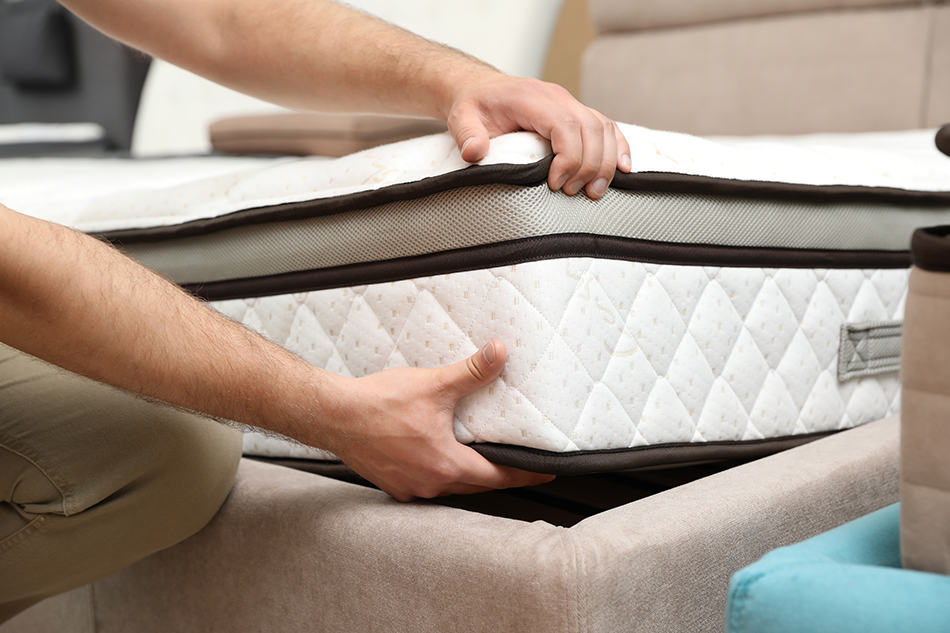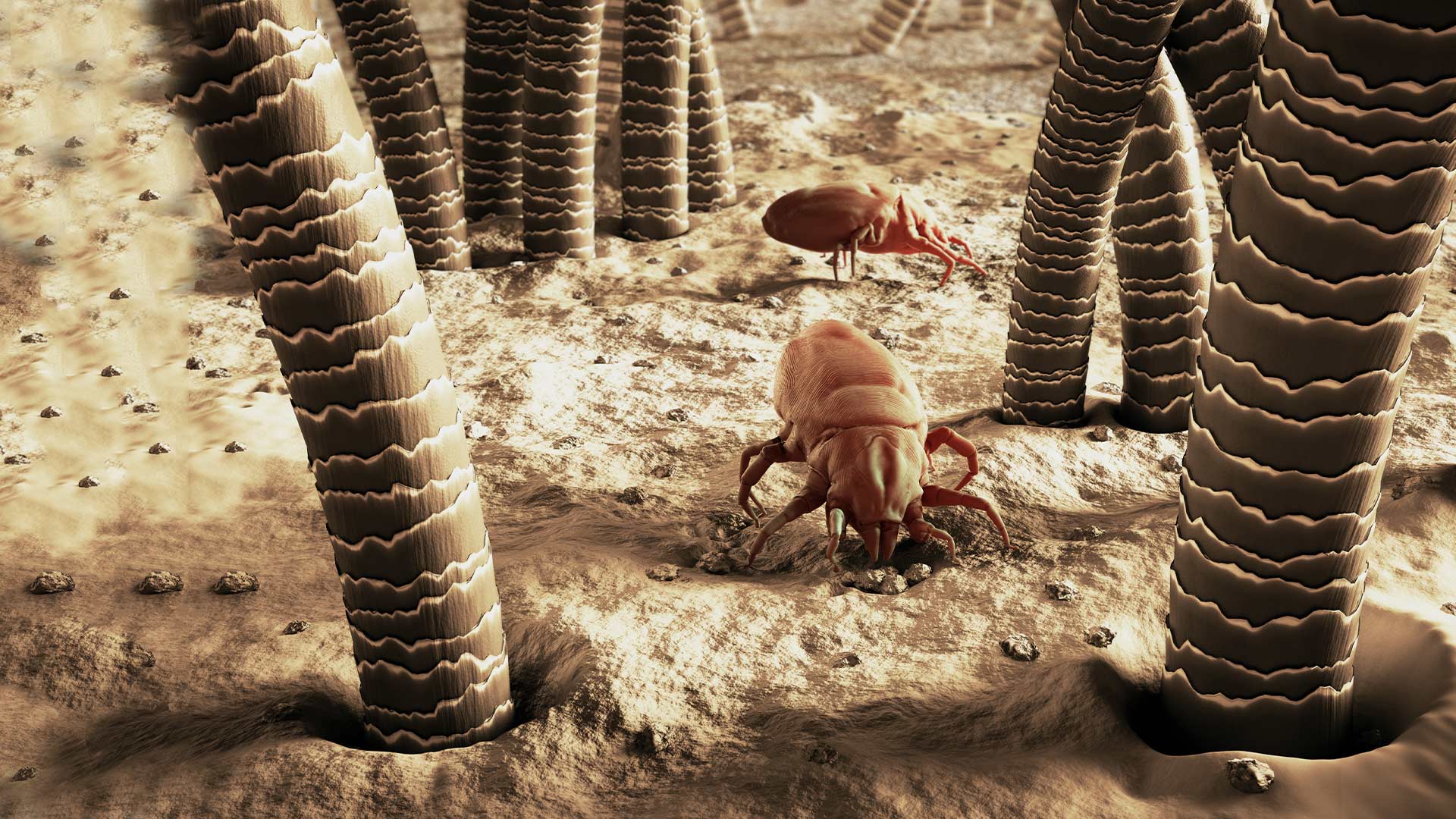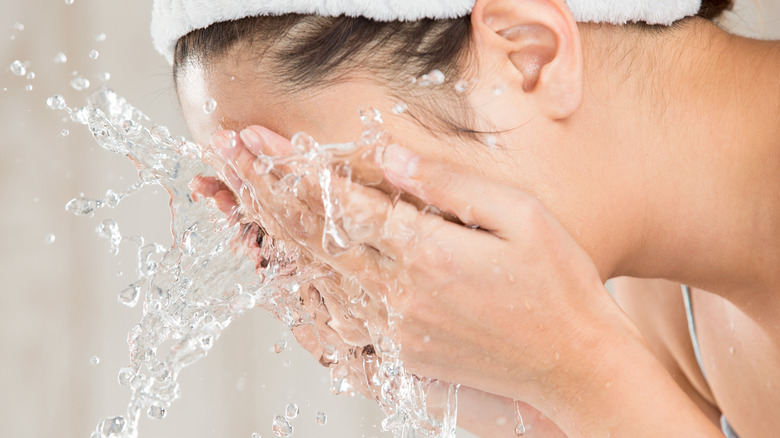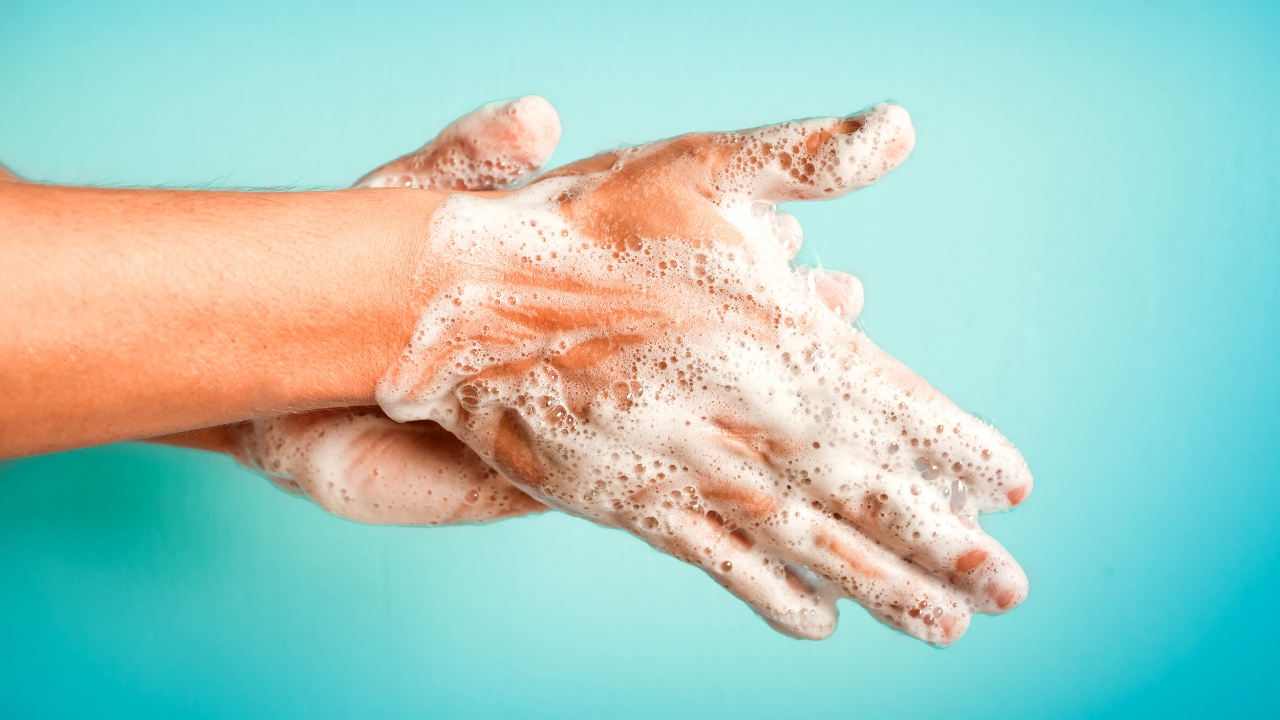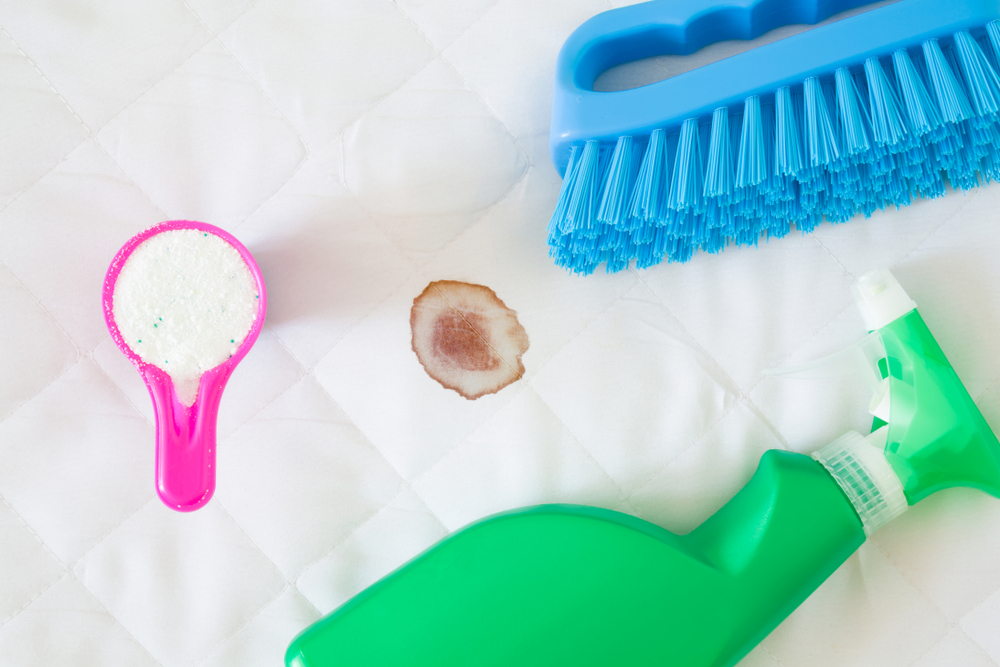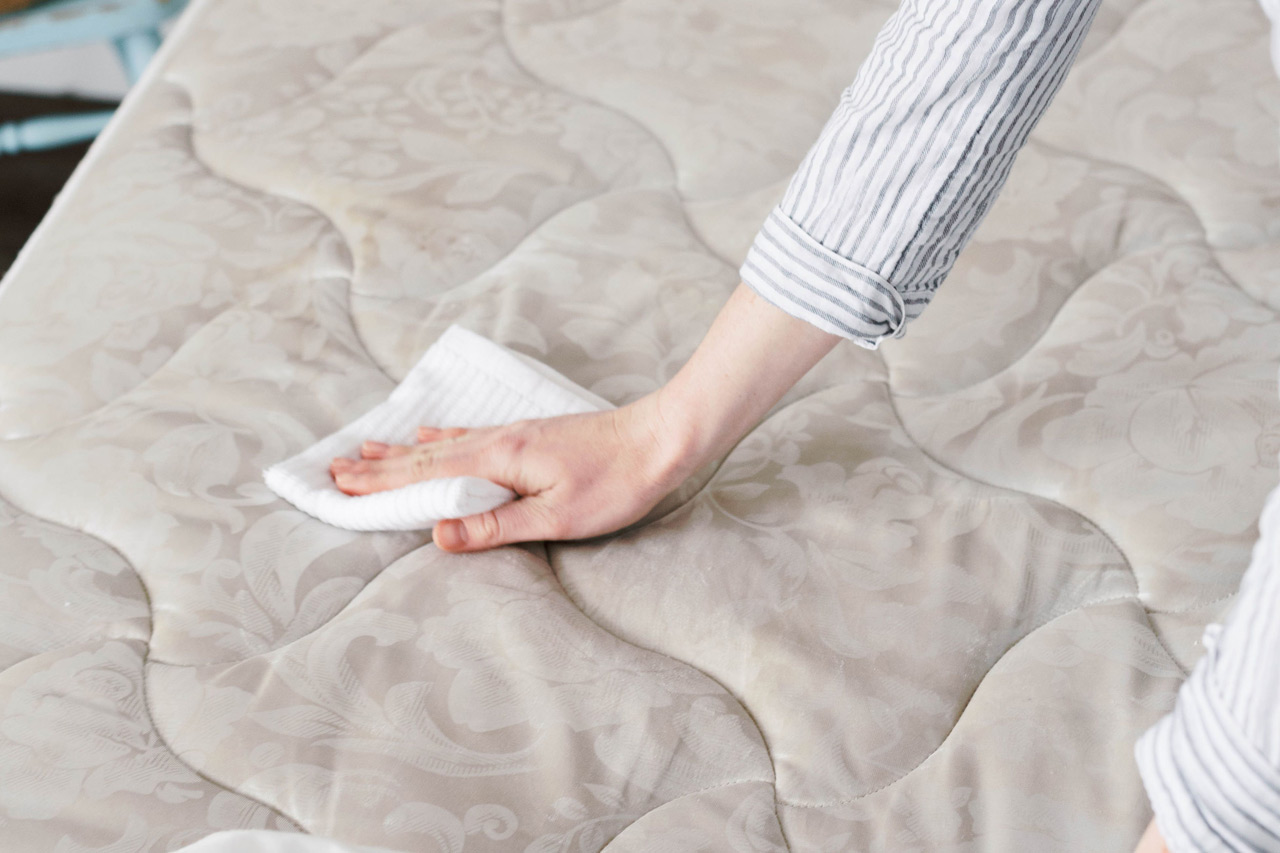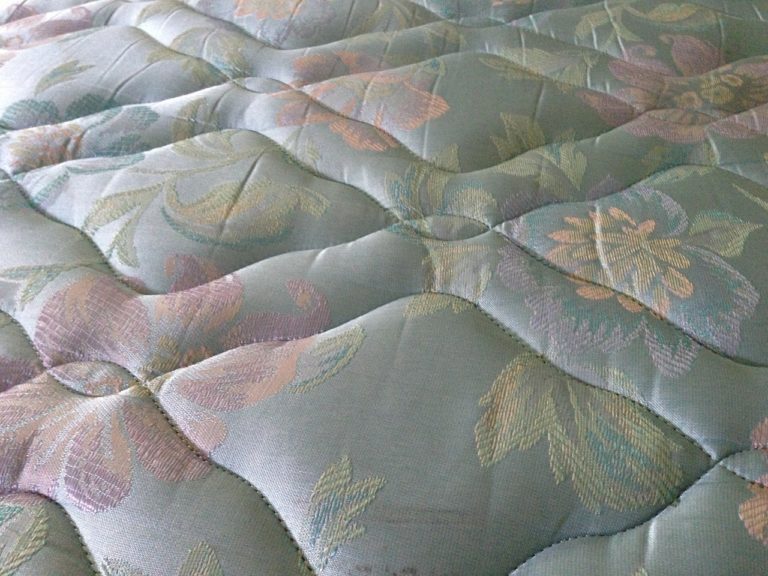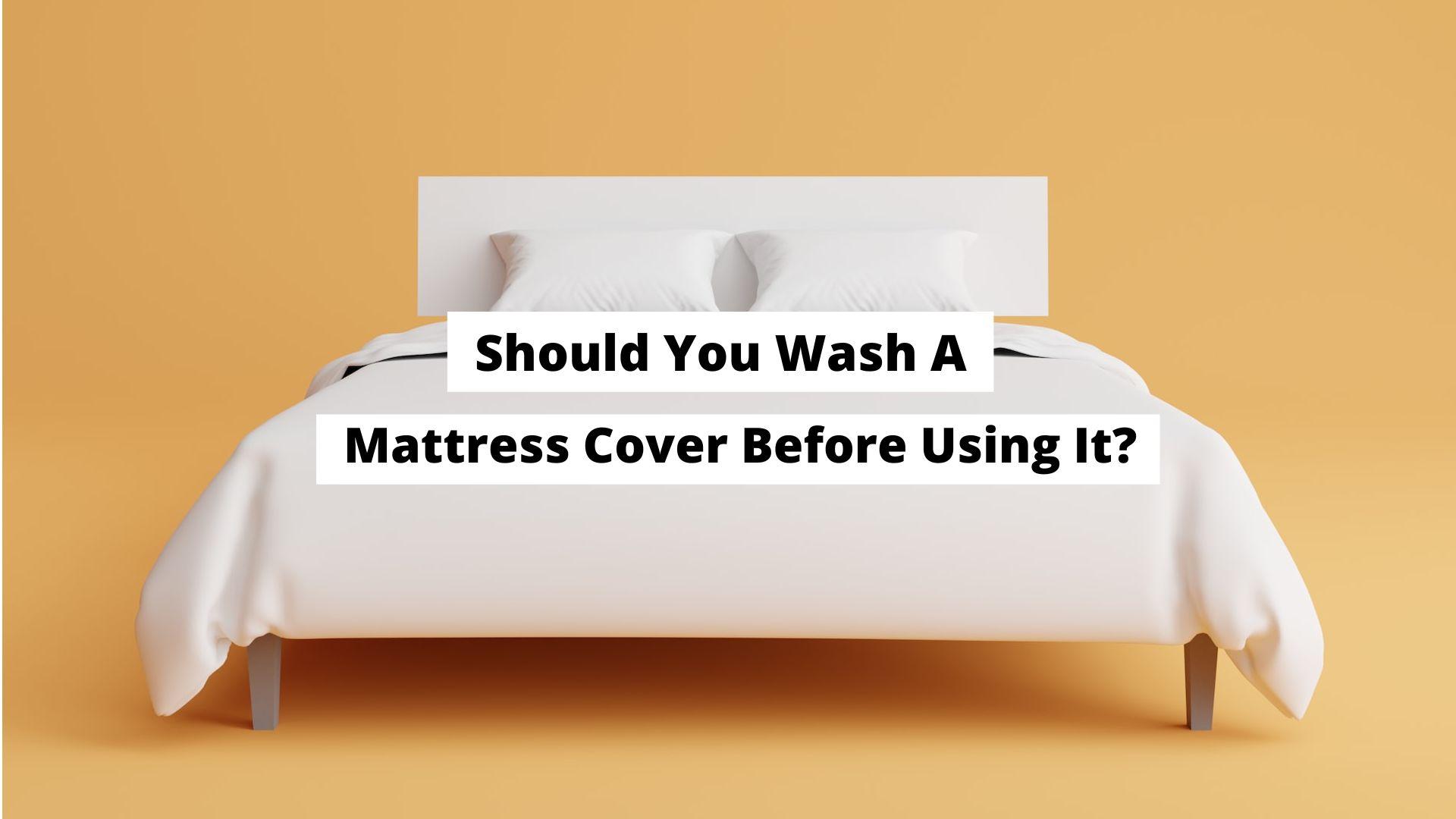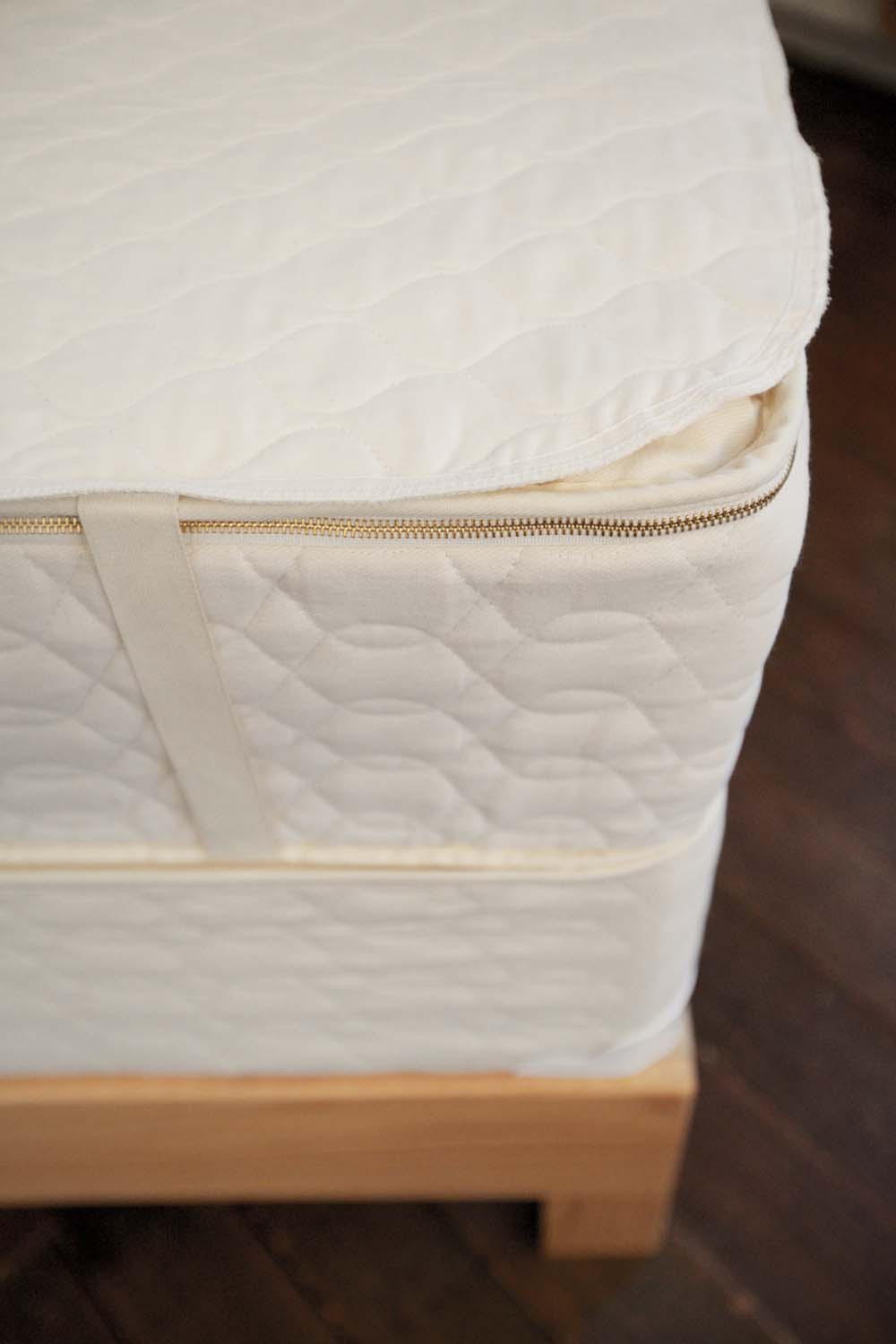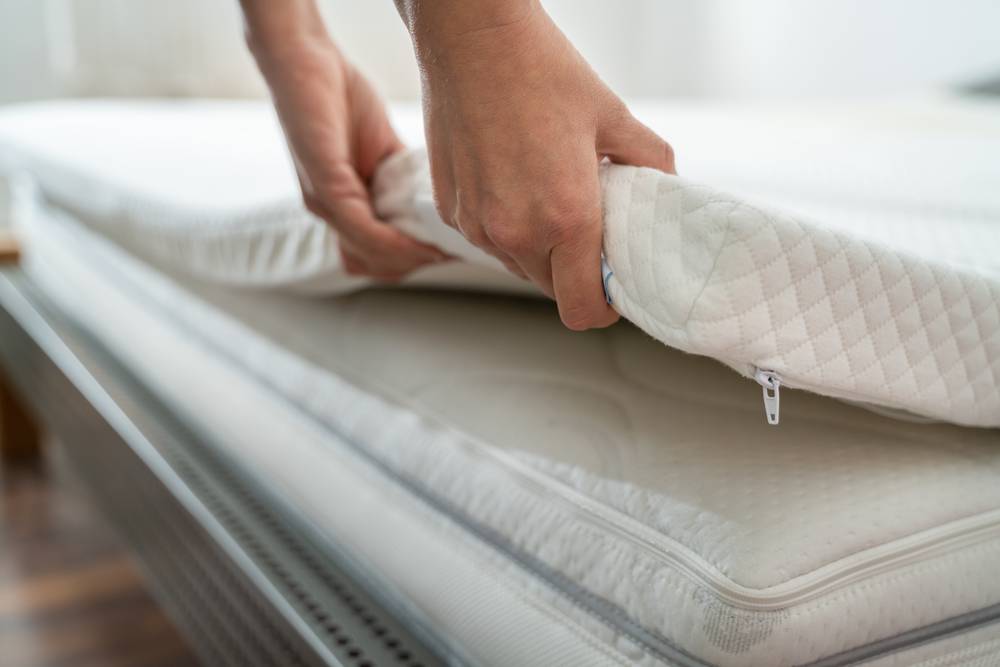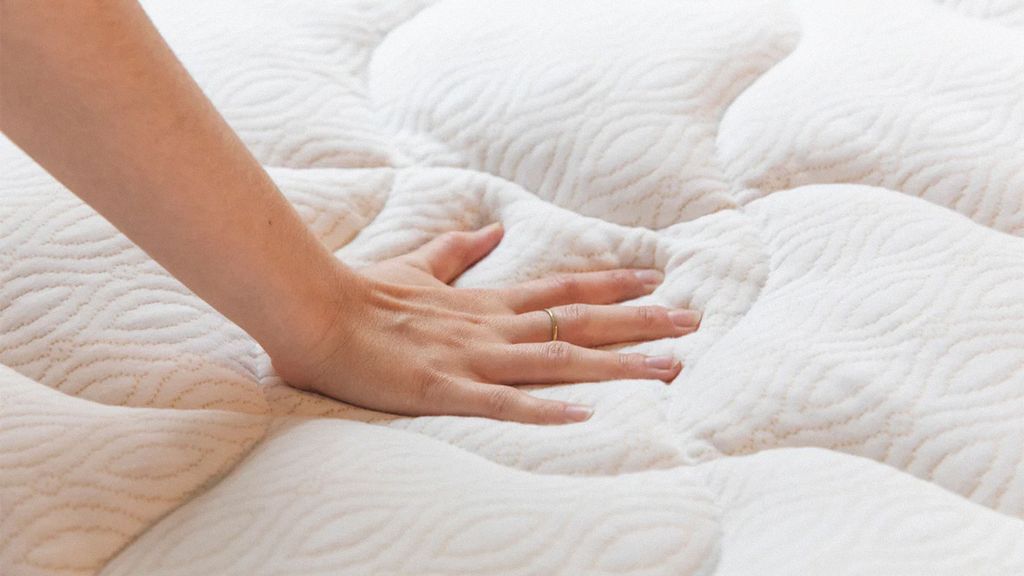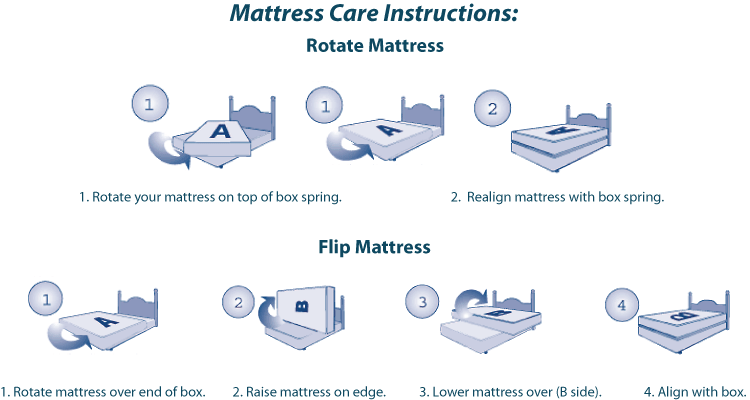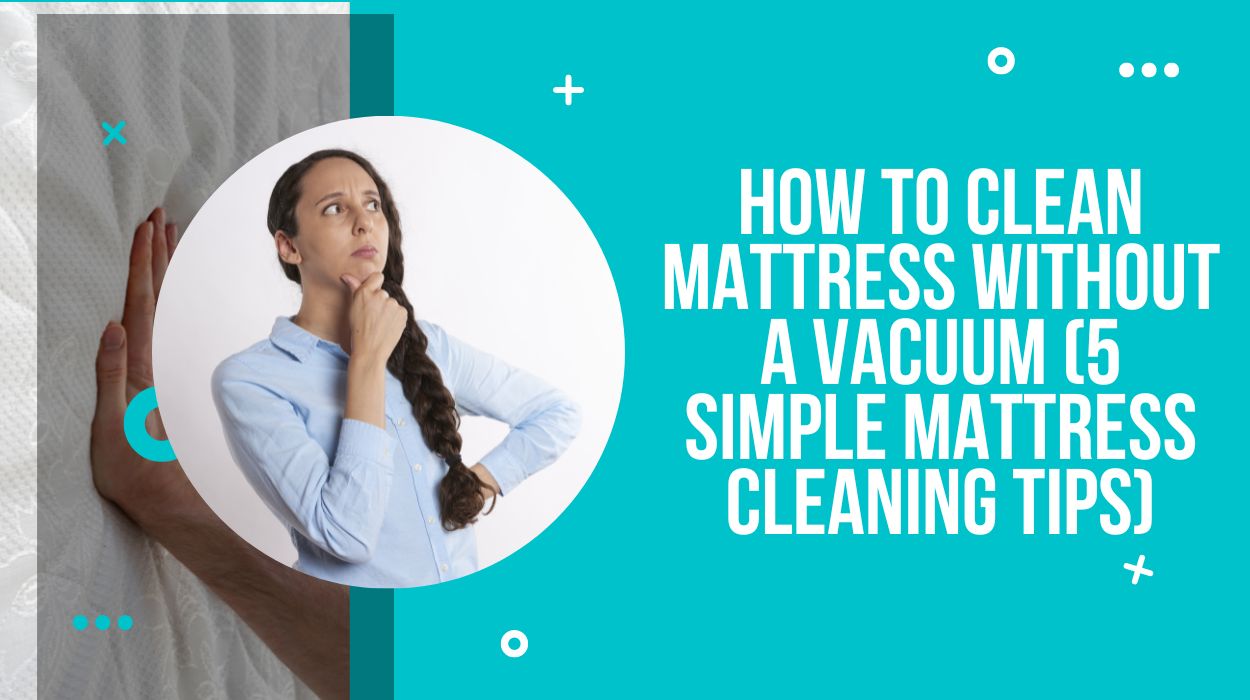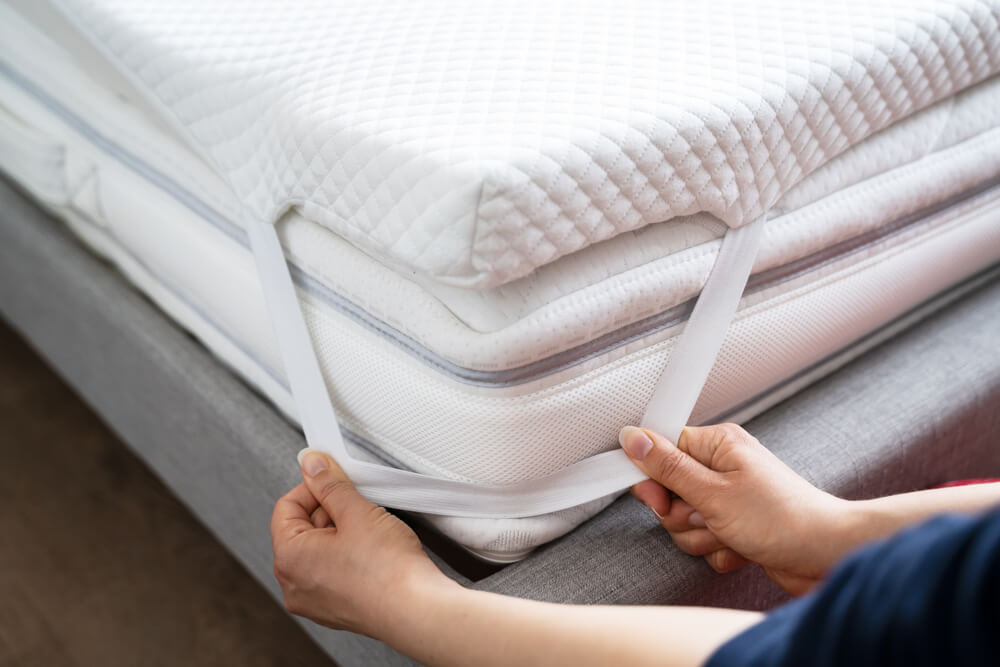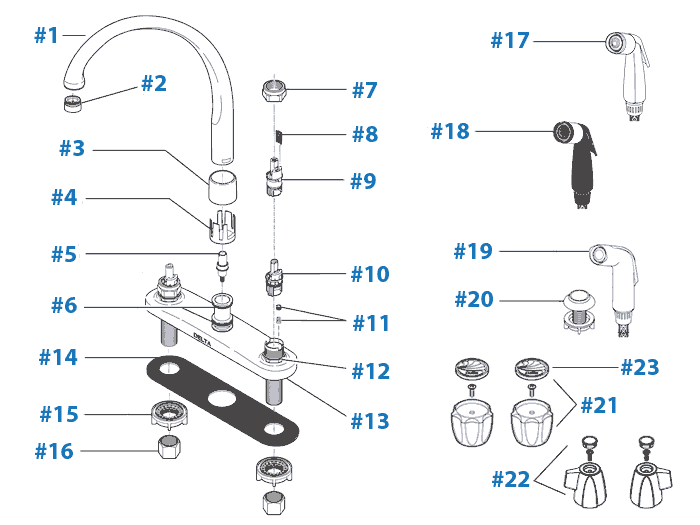Caring for your mattress pad is an essential part of keeping your bed clean and hygienic. However, many people are unsure of the proper way to wash their mattress pad. Here's a step-by-step guide on how to wash your mattress pad to keep it fresh and clean. Step 1: Check the Care Instructions The first step in washing your mattress pad is to check the care instructions. Different materials may have different washing requirements, so it's important to follow the instructions provided by the manufacturer. Step 2: Remove and Wash Any Stains If your mattress pad has any visible stains, it's best to pre-treat them before washing. You can use a stain remover or a mixture of white vinegar and water to spot clean the stains. Let it sit for a few minutes before washing. Step 3: Use the Right Washing Machine Settings If your mattress pad is machine washable, make sure to use the right settings. Use a mild detergent and set the machine to a gentle or delicate cycle. Avoid using hot water as it can damage the fabric and cause shrinkage. Step 4: Dry the Mattress Pad Once the washing cycle is complete, remove the mattress pad from the machine. You can air dry it or tumble dry on a low setting. Avoid using high heat as it can cause damage to the material. Step 5: Reattach the Mattress Pad to the Mattress After the mattress pad is completely dry, you can reattach it to your mattress. Make sure it fits properly and is secured in place.How to Wash a Mattress Pad
One of the most common questions about washing a mattress pad is how often it should be done. The frequency of washing your mattress pad will depend on a few factors, such as your sleeping habits, allergies, and overall cleanliness. If you have allergies or tend to sweat a lot while sleeping, it's recommended to wash your mattress pad every 1-2 weeks. For those with less sensitive skin and who don't sweat as much, washing every 2-3 months should suffice. It's important to also keep an eye out for any visible stains or odors on your mattress pad. If you notice any, it's best to wash it immediately.How Often Should You Wash Your Mattress Pad?
Most mattress pads are machine washable, but it's always important to check the care instructions first. Some materials may require hand washing or dry cleaning instead. If your mattress pad is machine washable, make sure to follow the steps mentioned above for the best results. It's also important to not overload the machine, as this can cause the pad to not be cleaned properly or could potentially damage the machine.Can You Put a Mattress Pad in the Washing Machine?
Cleaning your mattress pad regularly not only helps keep it fresh and hygienic, but it can also help prolong its lifespan. Here are a few tips for keeping your mattress pad clean: 1. Vacuum Regularly Use your vacuum's upholstery attachment to remove any dust, hair, or other debris from the surface of your mattress pad. 2. Spot Clean Stains If you notice any stains, spot clean them with a mixture of white vinegar and water or a mild detergent. Avoid using harsh chemicals as they can damage the fabric. 3. Flip and Rotate Just like your mattress, it's a good idea to flip and rotate your mattress pad every few months. This will help distribute wear and tear evenly. 4. Air it Out Every time you wash your bedding, take the opportunity to air out your mattress pad. This will help eliminate any musty odors and keep it fresh.How to Clean a Mattress Pad
Washing your mattress pad regularly is essential for maintaining a clean and healthy sleeping environment. Here are a few reasons why you should make it a regular part of your cleaning routine: 1. Remove Dirt and Debris Over time, your mattress pad can accumulate dust, hair, and other debris. Regular washing will help remove these and keep your bed clean. 2. Eliminate Allergens For those with allergies, washing your mattress pad is crucial. It can help remove allergens such as dust mites, pet dander, and pollen. 3. Prevent Odors With regular use, your mattress pad can start to develop musty odors. Washing it regularly will help keep it smelling fresh and clean.Why You Should Wash Your Mattress Pad
If you neglect to wash your mattress pad, it can lead to a buildup of dirt, sweat, and other debris. This can not only make your bed less hygienic, but it can also affect your sleep quality. Not washing your mattress pad regularly can also lead to the growth of mold, mildew, and bacteria, which can cause health issues. Additionally, not washing your mattress pad can also lead to the deterioration of the material, shortening its lifespan and potentially causing it to become uncomfortable to sleep on.What Happens If You Don't Wash Your Mattress Pad?
If your mattress pad has any stains, it's important to address them as soon as possible. Here are a few tips for removing stains from a mattress pad: 1. Baking Soda A mixture of baking soda and water can help remove tough stains. Apply the paste to the stain and let it sit for 30 minutes before washing. 2. Hydrogen Peroxide For tougher stains, you can mix hydrogen peroxide and water and apply it to the stain. Let it sit for an hour before washing. 3. Lemon Juice A mixture of lemon juice and water can help remove stains and brighten the fabric. Apply it to the stain and let it sit for 15 minutes before washing.How to Remove Stains from a Mattress Pad
Bleach can be a powerful stain remover, but it's not recommended for use on most mattress pads. Bleach can damage the fabric and cause discoloration and yellowing. If your mattress pad is white, you may be able to use a small amount of bleach, but it's important to spot test it first to ensure it won't cause any damage.Should You Use Bleach to Wash Your Mattress Pad?
When it comes to drying your mattress pad, it's best to avoid high heat or direct sunlight. Both of these can damage the fabric and cause shrinkage. Instead, opt for air drying or using a low heat setting on your dryer. It may take longer, but it will help preserve the quality of your mattress pad.How to Dry a Mattress Pad
Here are a few additional tips for maintaining a clean and hygienic mattress pad: 1. Use a Mattress Protector To help protect your mattress pad from spills and stains, consider using a mattress protector. This extra layer can also help prolong the life of your mattress pad. 2. Wash Your Bedding Regularly In addition to washing your mattress pad, it's important to also wash your sheets, pillowcases, and other bedding regularly. This will help prevent any dirt or debris from transferring onto your clean mattress pad. 3. Avoid Eating in Bed Eating in bed can lead to crumbs and spills on your mattress pad. Try to avoid eating in bed to keep it clean and hygienic.Tips for Maintaining a Clean Mattress Pad
Why Washing Your Mattress Pad is Essential for a Clean and Healthy Home
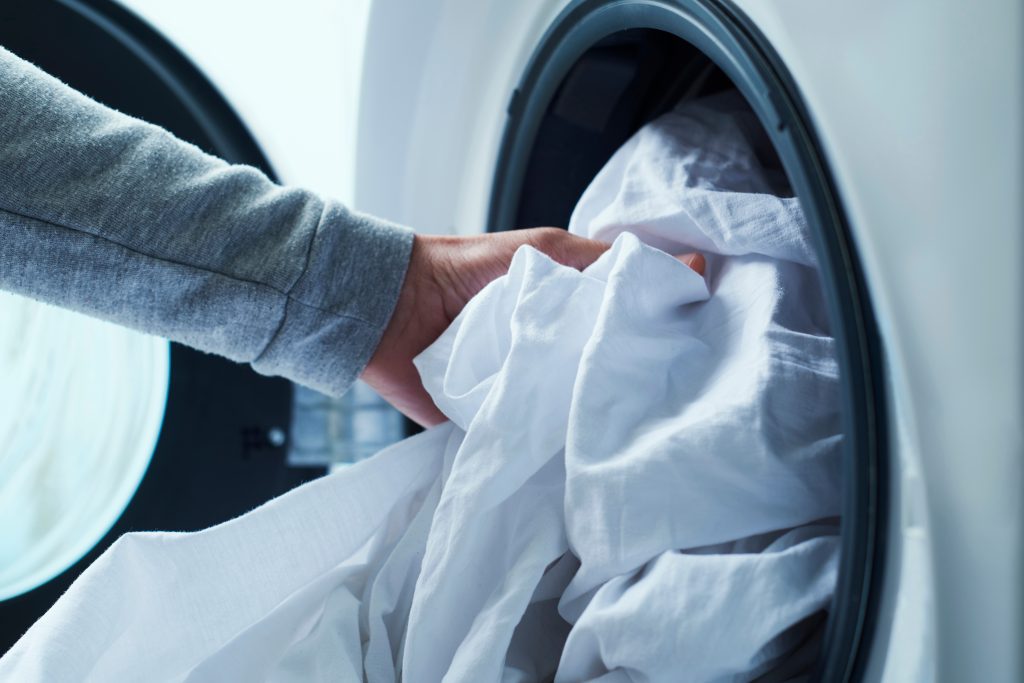
The Importance of a Clean Mattress Pad
 When it comes to maintaining a clean and healthy home, many people often overlook one important aspect -
washing their mattress pad
. We spend about a third of our lives sleeping, and our mattress pad is the barrier between us and our mattress. It's designed to protect our mattress from stains, spills, and sweat, but it also absorbs dead skin cells, dust mites, and other allergens. This is why regularly washing your mattress pad is crucial for a clean and healthy home.
When it comes to maintaining a clean and healthy home, many people often overlook one important aspect -
washing their mattress pad
. We spend about a third of our lives sleeping, and our mattress pad is the barrier between us and our mattress. It's designed to protect our mattress from stains, spills, and sweat, but it also absorbs dead skin cells, dust mites, and other allergens. This is why regularly washing your mattress pad is crucial for a clean and healthy home.
How Often Should You Wash Your Mattress Pad?
 Experts recommend washing your mattress pad at least once every three months
, or more frequently if you have allergies or other health concerns. This may vary depending on your lifestyle and sleeping habits, so it's important to pay attention to any visible stains or odors. If you have pets or young children who frequently share your bed, you may need to wash your mattress pad more often.
Experts recommend washing your mattress pad at least once every three months
, or more frequently if you have allergies or other health concerns. This may vary depending on your lifestyle and sleeping habits, so it's important to pay attention to any visible stains or odors. If you have pets or young children who frequently share your bed, you may need to wash your mattress pad more often.
The Benefits of Washing Your Mattress Pad
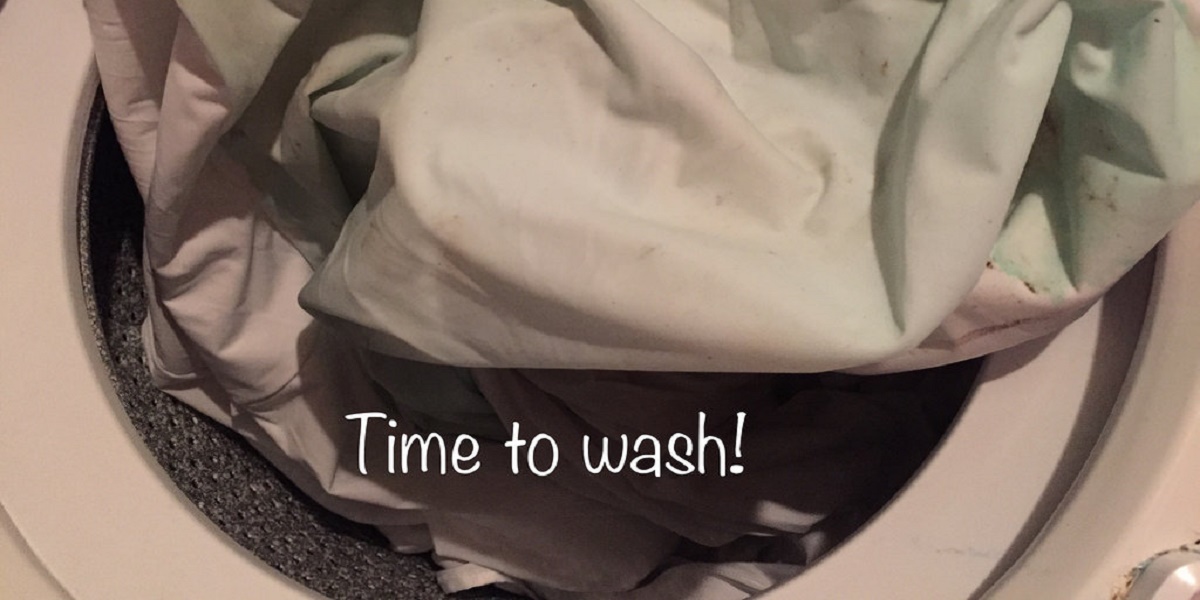 Regularly washing your mattress pad has numerous benefits for both your health and the longevity of your mattress.
Removing dead skin cells, dust mites, and other allergens from your mattress pad can improve the air quality in your bedroom
, making it easier for you to breathe and reducing the risk of allergies or respiratory issues. It also helps to prevent the buildup of mold and mildew, which can cause unpleasant odors and even damage your mattress.
Regularly washing your mattress pad has numerous benefits for both your health and the longevity of your mattress.
Removing dead skin cells, dust mites, and other allergens from your mattress pad can improve the air quality in your bedroom
, making it easier for you to breathe and reducing the risk of allergies or respiratory issues. It also helps to prevent the buildup of mold and mildew, which can cause unpleasant odors and even damage your mattress.
How to Properly Wash Your Mattress Pad
/wash-foam-mattress-pad-yoga-mat-2146355-Hero-1369cb5339dd4d27b13dd8310b0789d0.jpg) Before washing your mattress pad, it's important to check the care instructions. Most mattress pads can be machine washed, but some may require special care.
Use a gentle, hypoallergenic detergent and wash on a gentle cycle with cold water
. If your mattress pad has any stains, pre-treat them before washing. It's also recommended to wash your mattress pad on its own to prevent any damage from other items in the wash.
Before washing your mattress pad, it's important to check the care instructions. Most mattress pads can be machine washed, but some may require special care.
Use a gentle, hypoallergenic detergent and wash on a gentle cycle with cold water
. If your mattress pad has any stains, pre-treat them before washing. It's also recommended to wash your mattress pad on its own to prevent any damage from other items in the wash.
Conclusion
 In conclusion,
washing your mattress pad is an essential part of maintaining a clean and healthy home
. Not only does it help to improve the air quality in your bedroom, but it also extends the life of your mattress. Make sure to regularly wash your mattress pad according to the care instructions, and you'll enjoy a cleaner and fresher sleep environment.
In conclusion,
washing your mattress pad is an essential part of maintaining a clean and healthy home
. Not only does it help to improve the air quality in your bedroom, but it also extends the life of your mattress. Make sure to regularly wash your mattress pad according to the care instructions, and you'll enjoy a cleaner and fresher sleep environment.



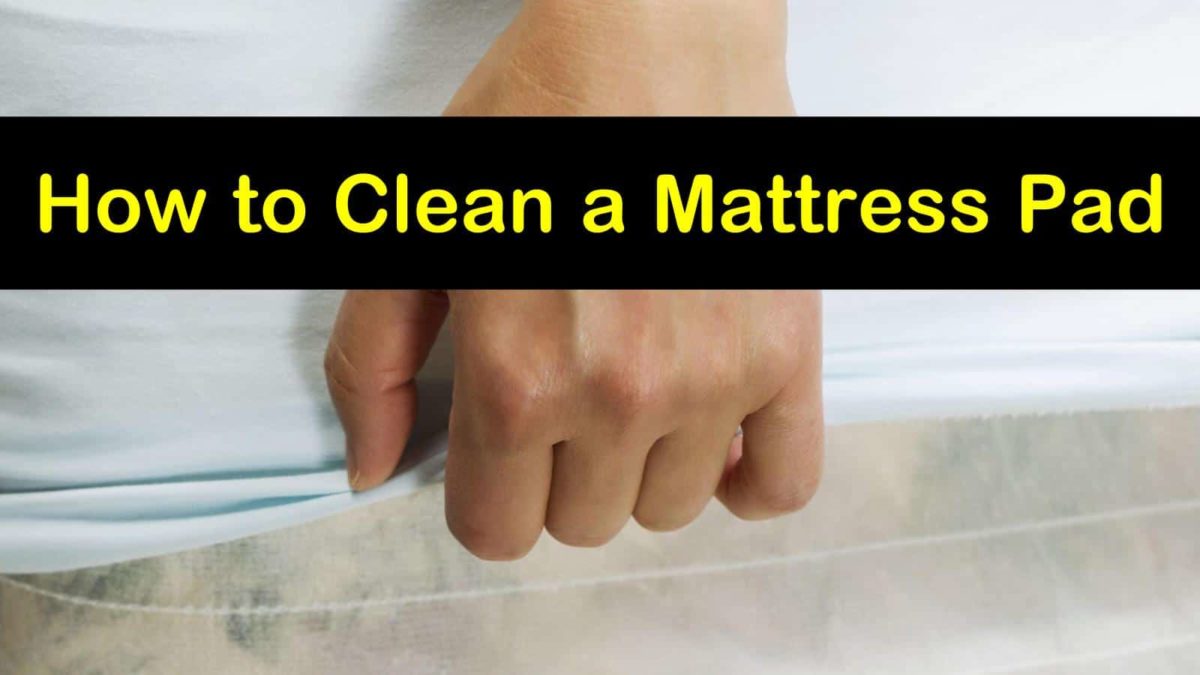


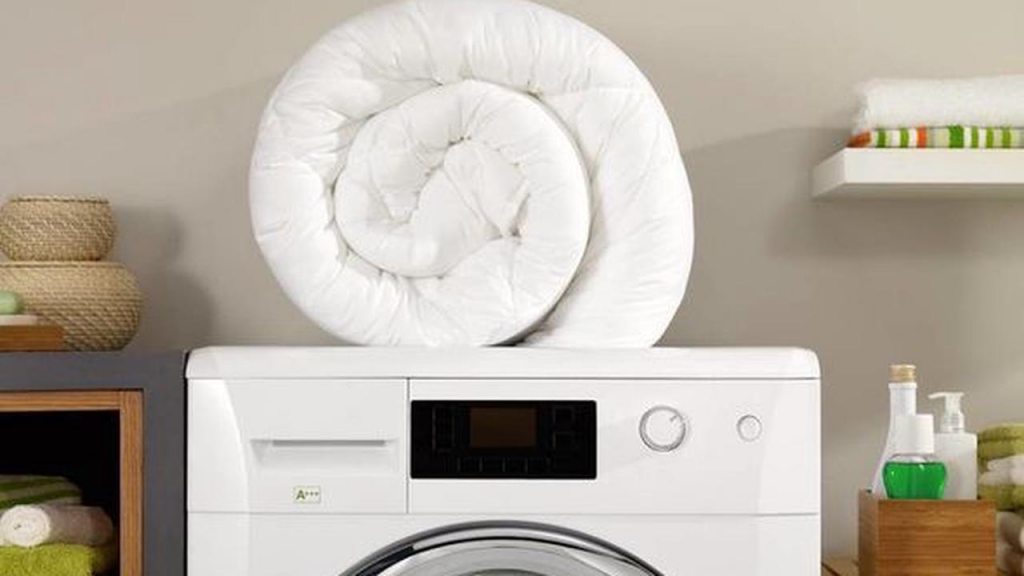
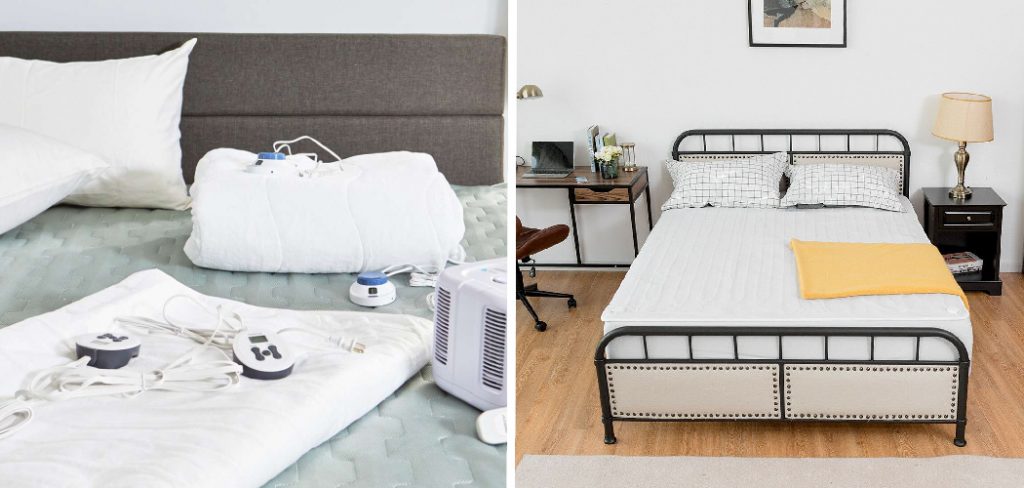
/mattress-foam--sponge-119652994-5a9455af6edd6500374c5e03.jpg)





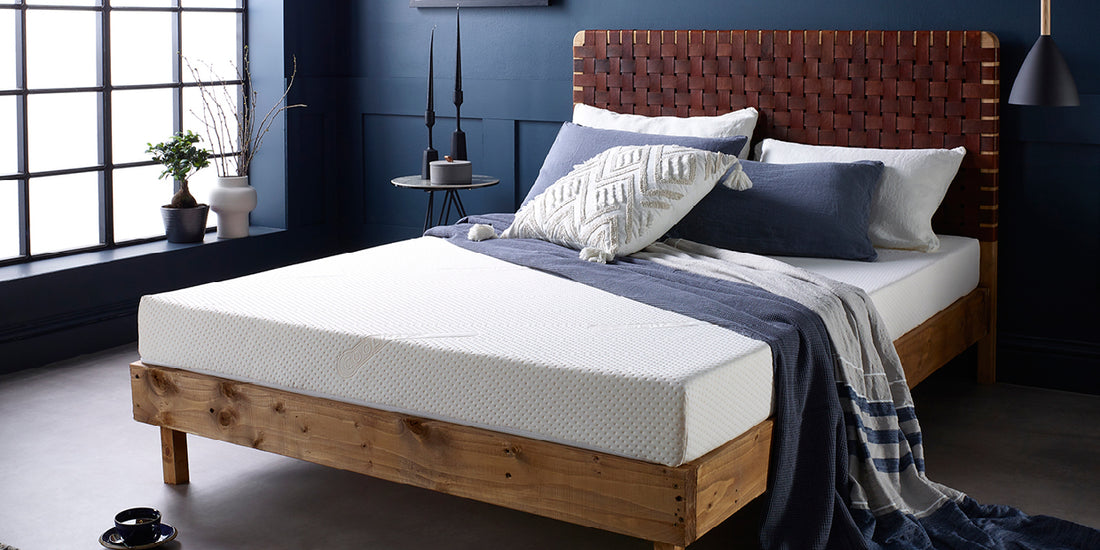



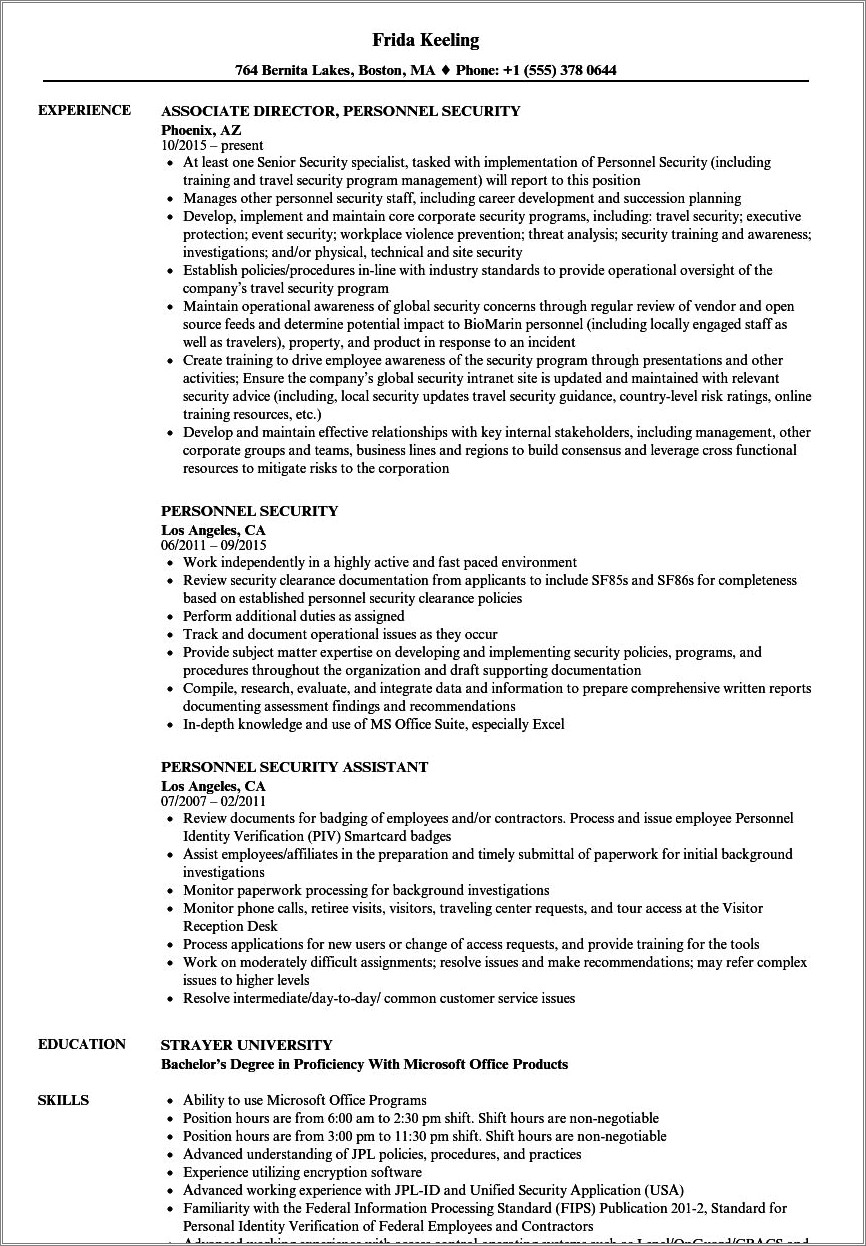

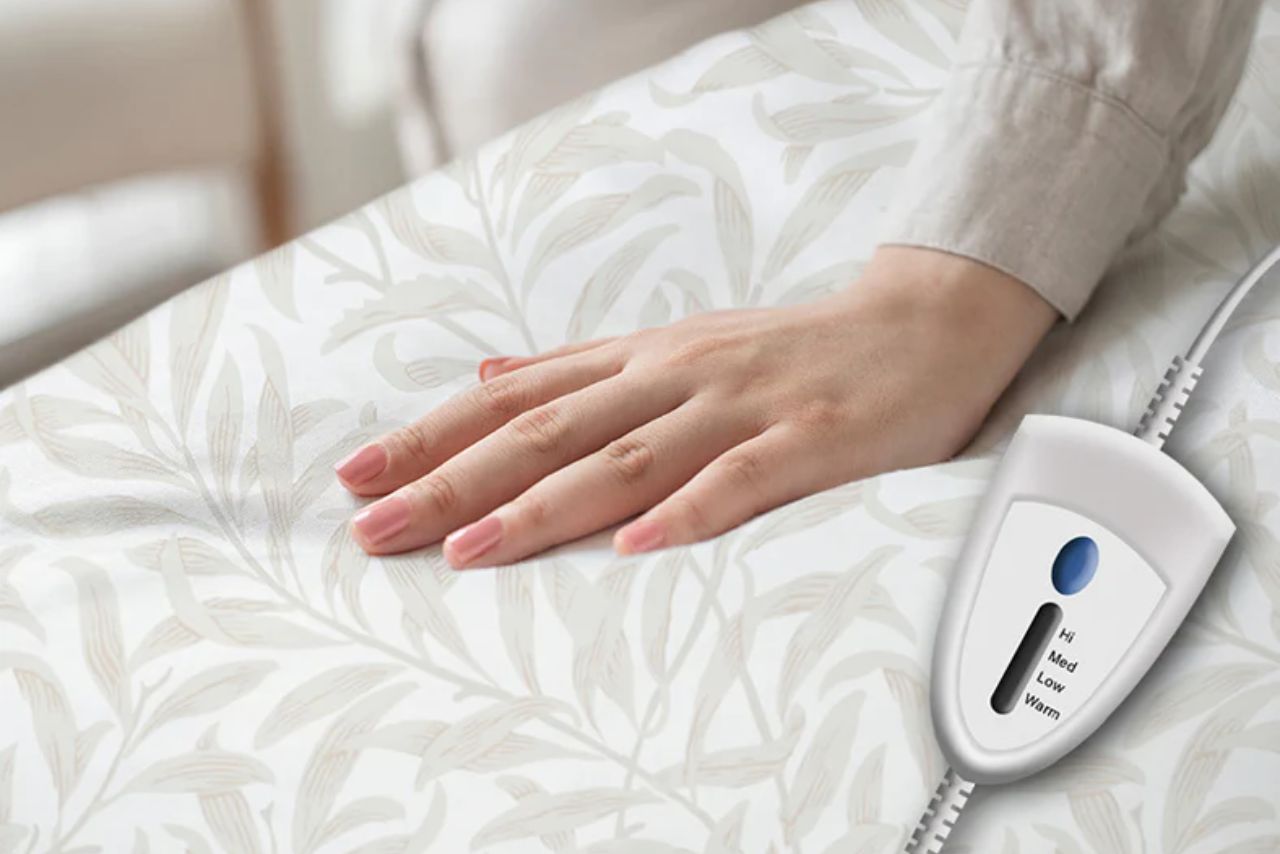


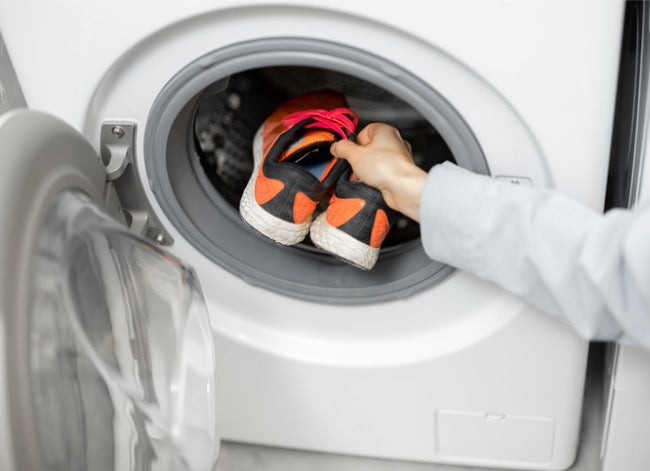
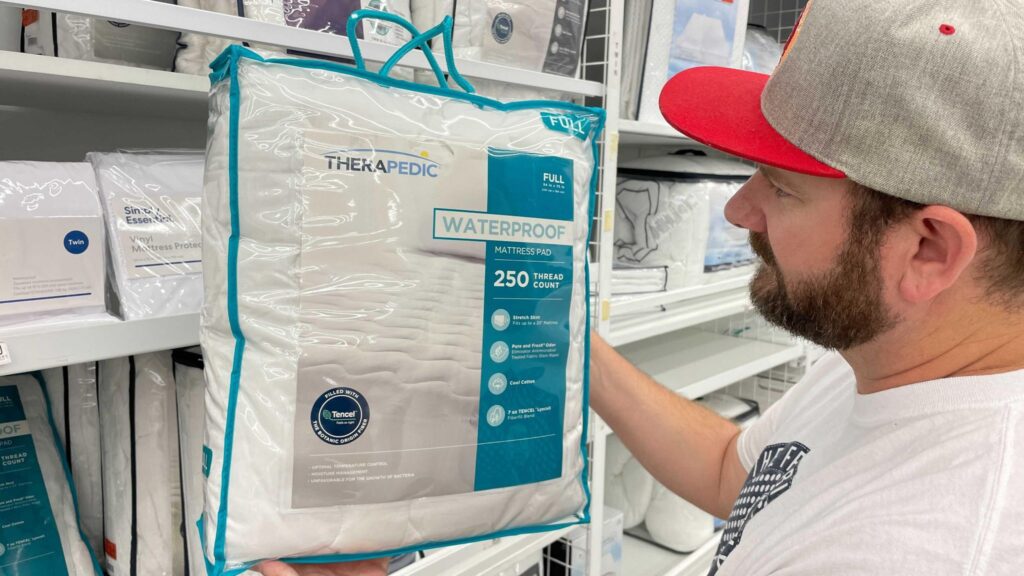

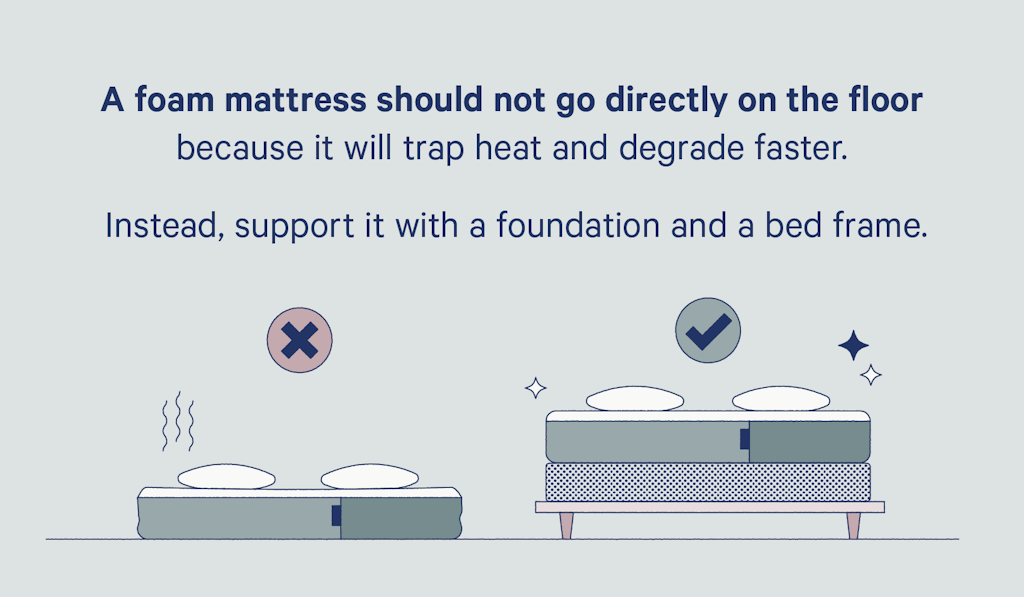


/GettyImages-183812306-56a4e8855f9b58b7d0d9d750.jpg)
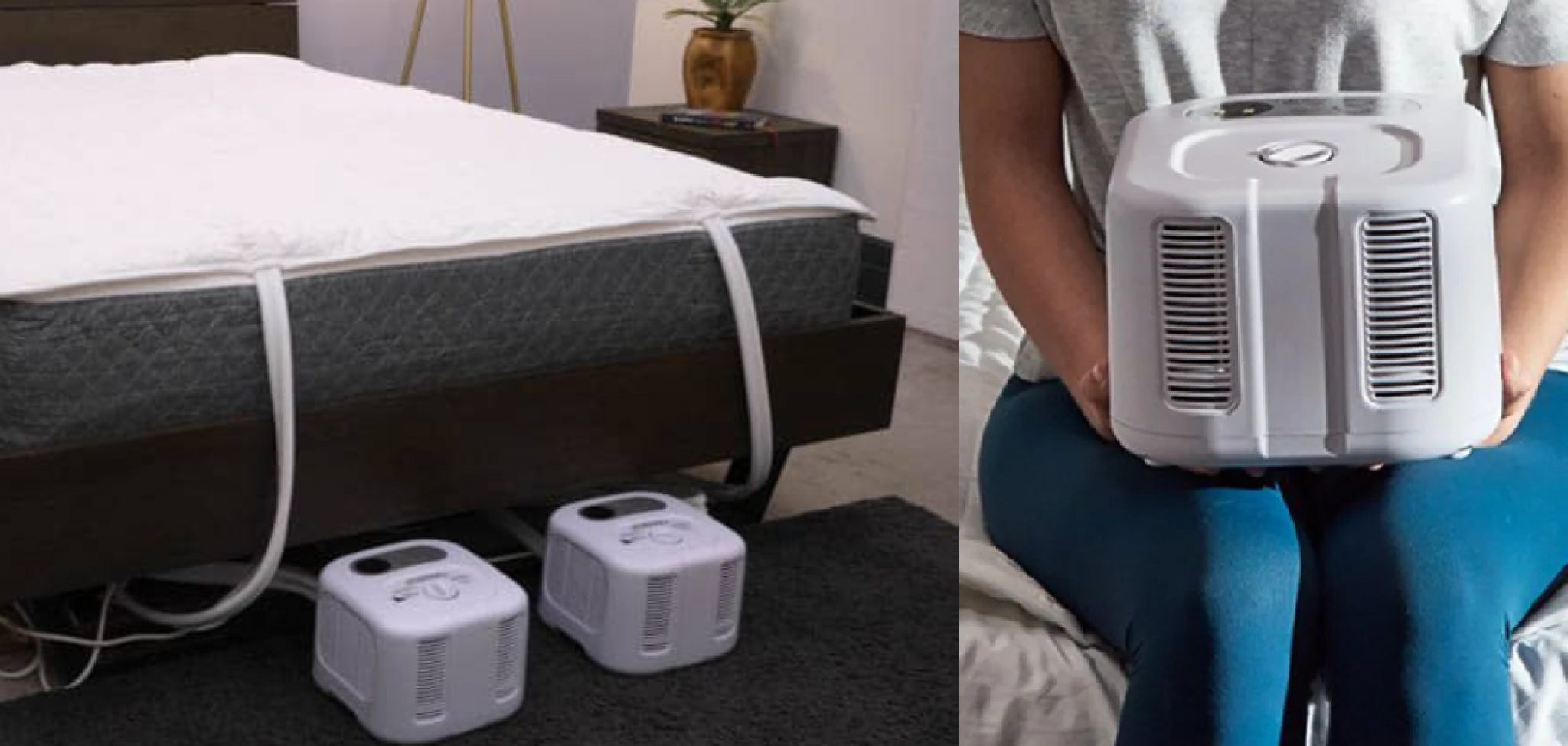
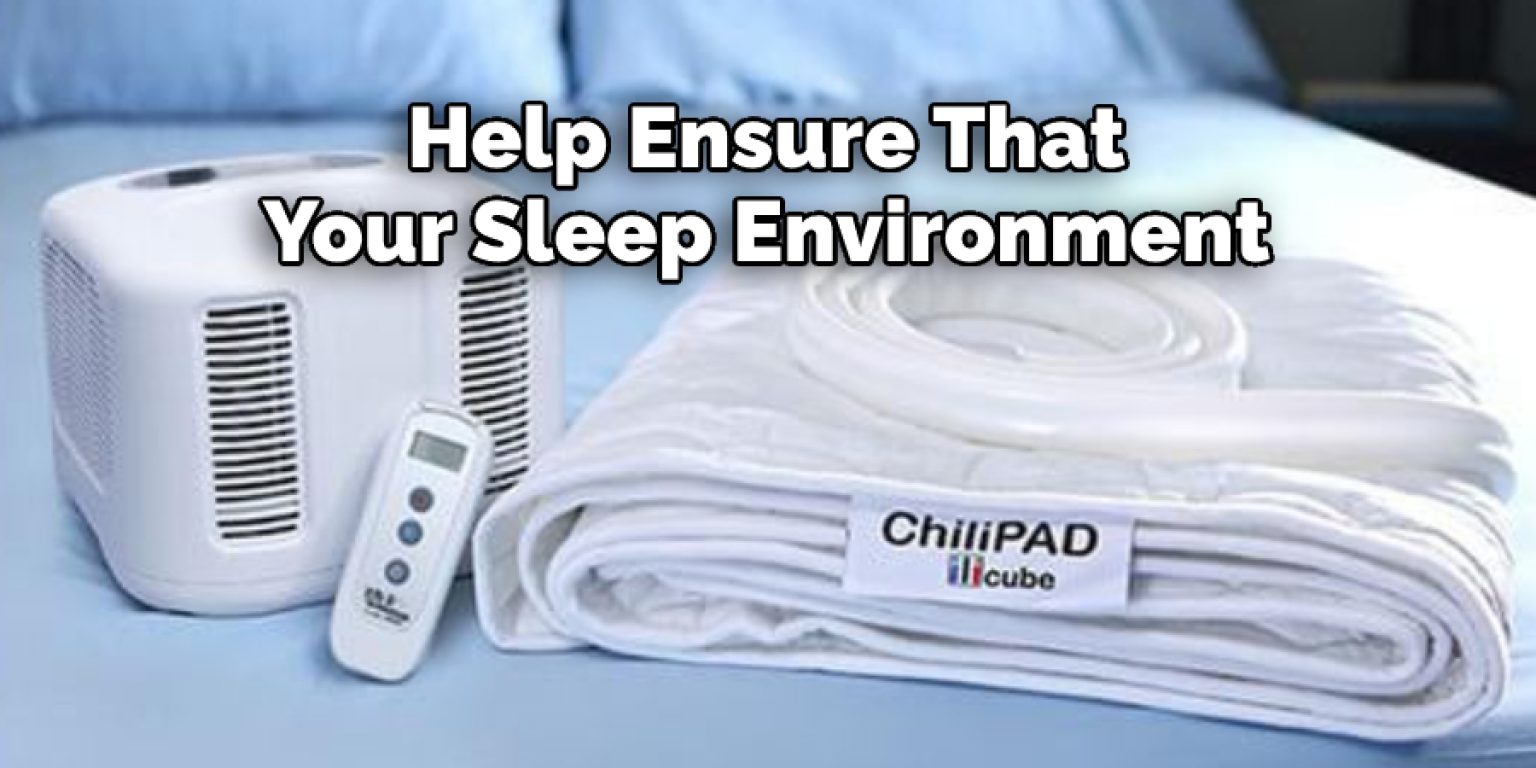


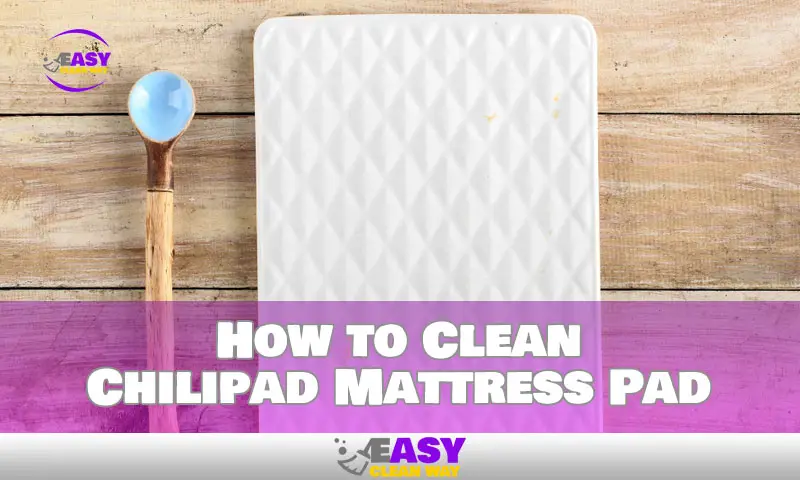

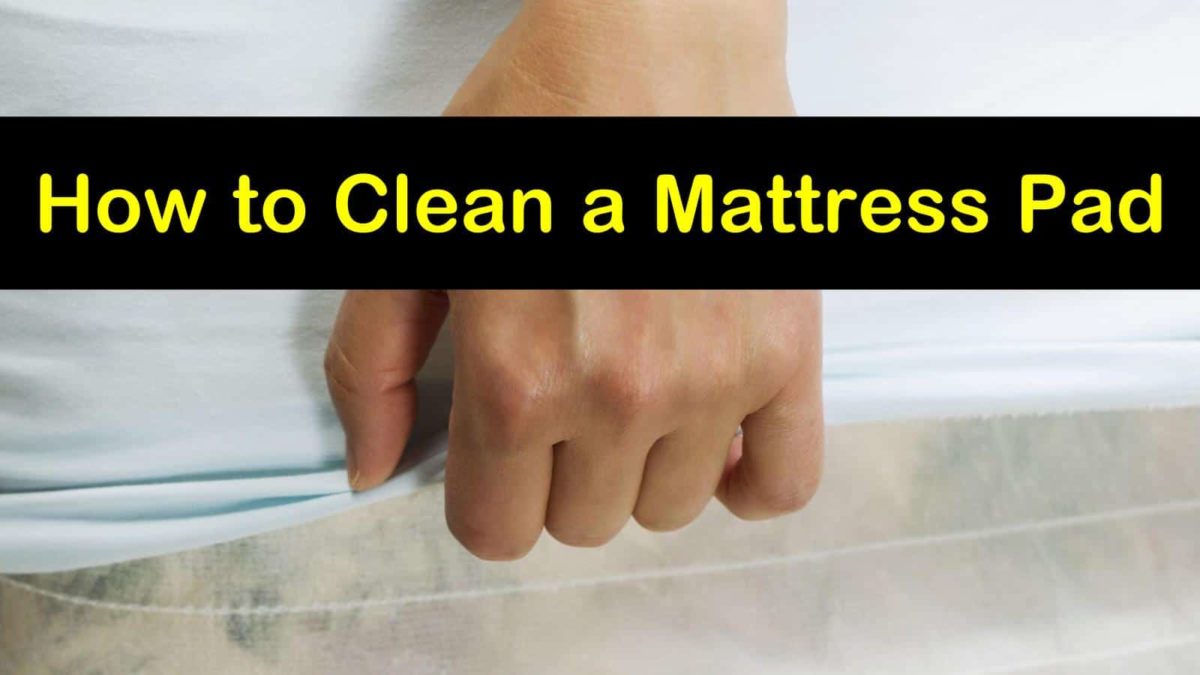



:max_bytes(150000):strip_icc()/clean-your-mattress-the-natural-way-350742-dd95404f7ac54f9b90f09045d9b4e98c.png)

